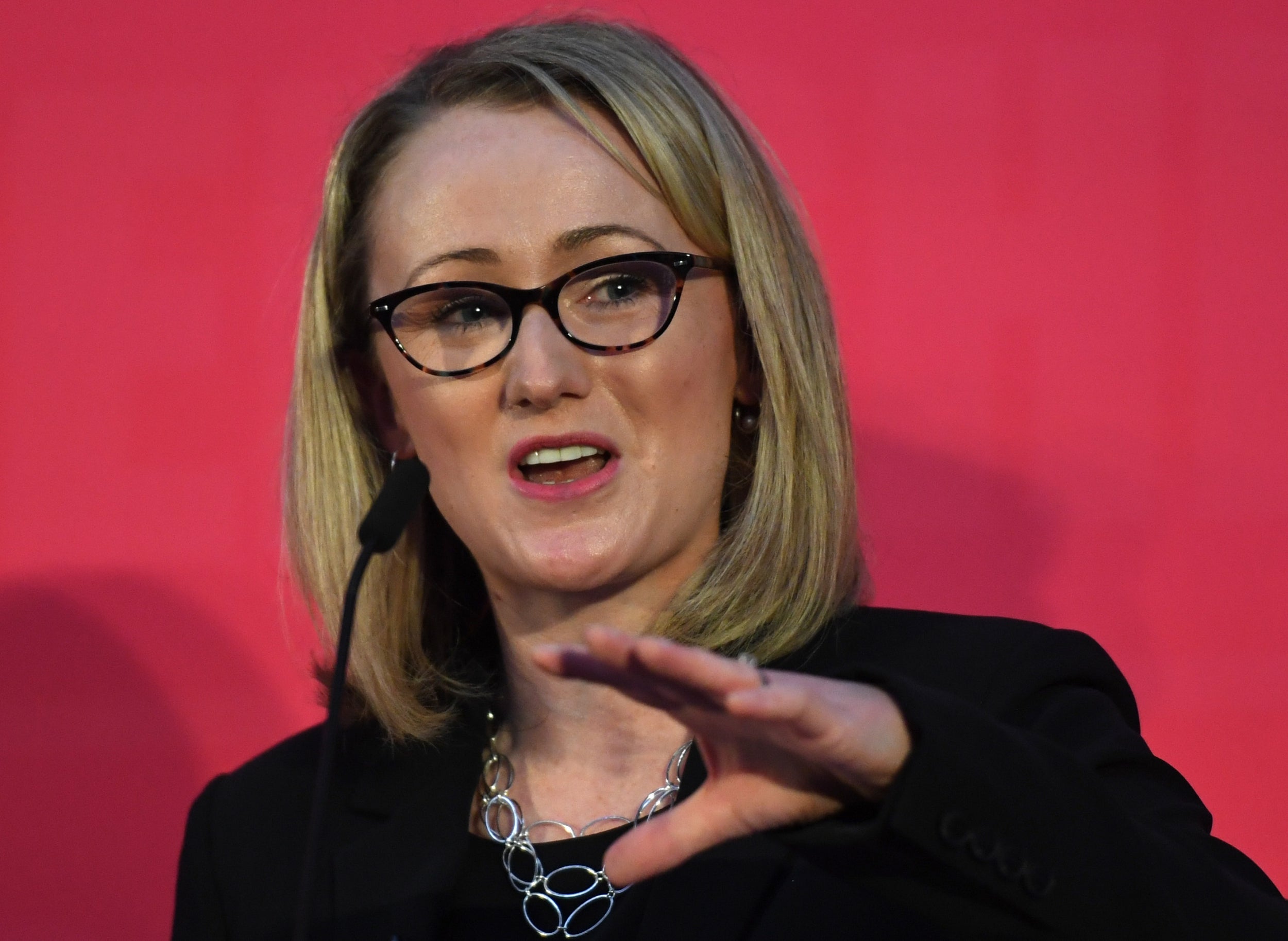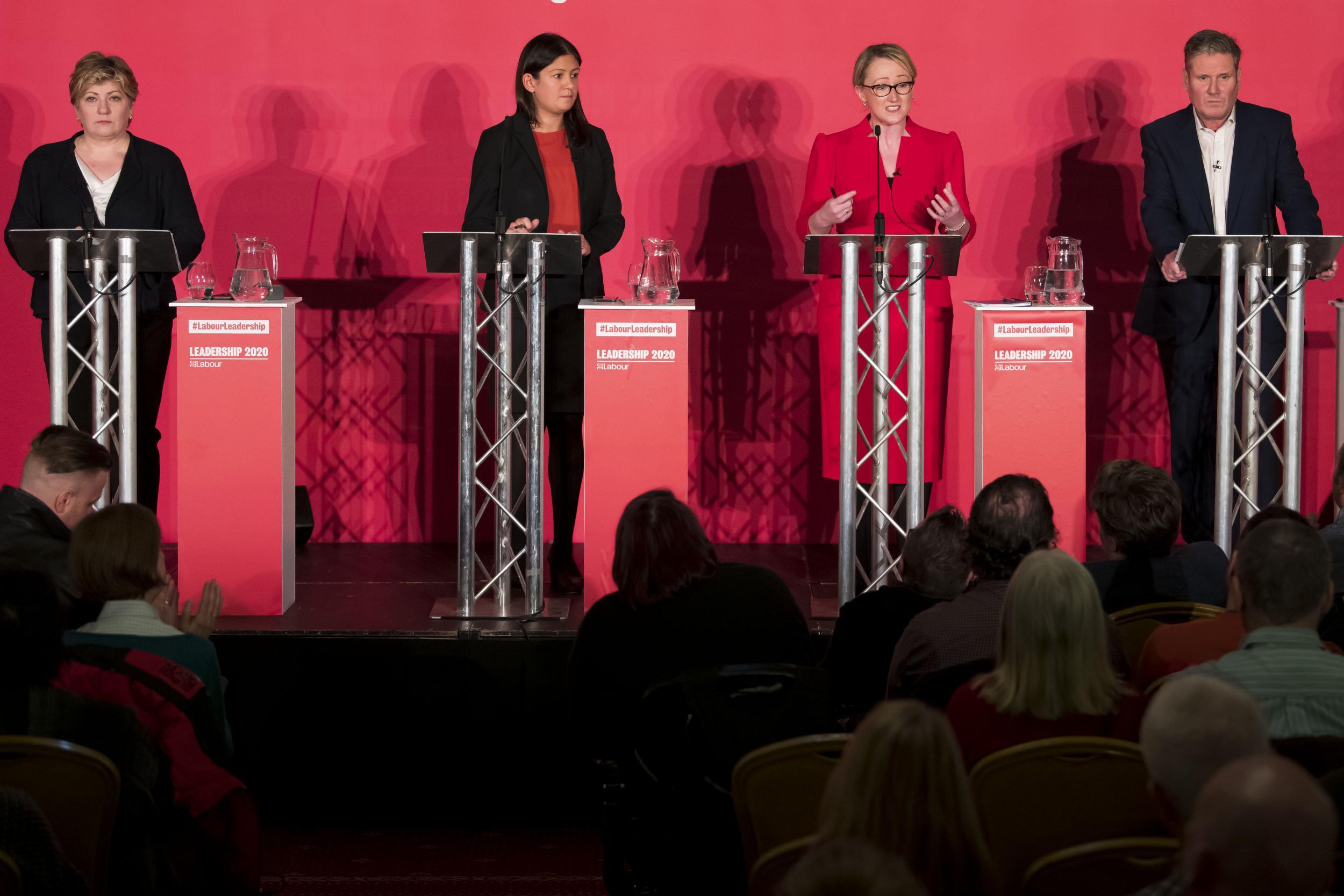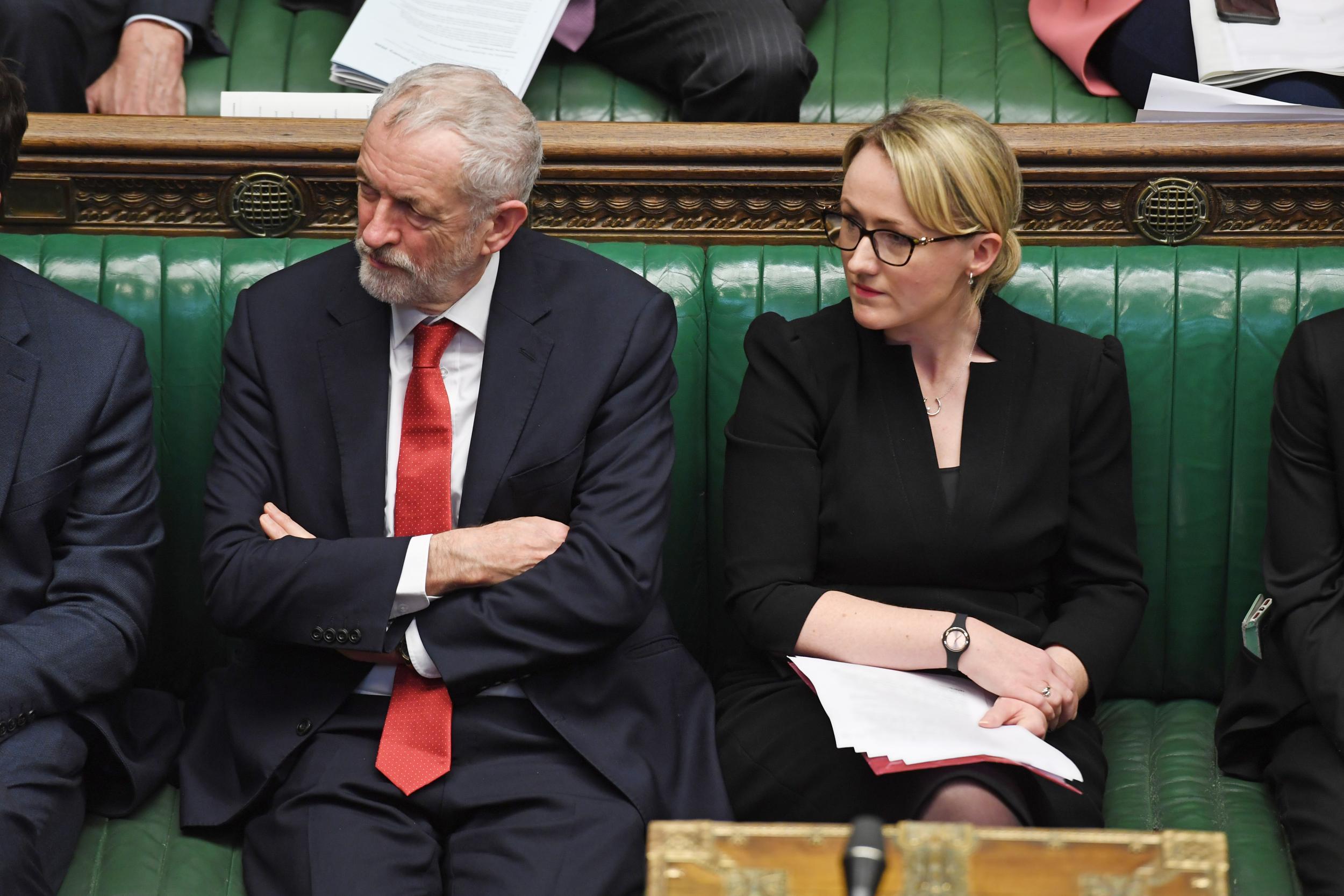Labour leadership: Rebecca Long-Bailey calls for Heathrow expansion to be ditched to combat climate emergency
Exclusive: Shadow business secretary also insists she can deliver Labour majority government in 2024

Your support helps us to tell the story
From reproductive rights to climate change to Big Tech, The Independent is on the ground when the story is developing. Whether it's investigating the financials of Elon Musk's pro-Trump PAC or producing our latest documentary, 'The A Word', which shines a light on the American women fighting for reproductive rights, we know how important it is to parse out the facts from the messaging.
At such a critical moment in US history, we need reporters on the ground. Your donation allows us to keep sending journalists to speak to both sides of the story.
The Independent is trusted by Americans across the entire political spectrum. And unlike many other quality news outlets, we choose not to lock Americans out of our reporting and analysis with paywalls. We believe quality journalism should be available to everyone, paid for by those who can afford it.
Your support makes all the difference.Labour leadership contender Rebecca Long-Bailey has insisted Heathrow expansion must be ditched if the UK is to meet its aim of reaching net zero carbon emissions and tackling the climate emergency.
In an interview with The Independent, the frontbencher – one of four candidates vying to replace Jeremy Corbyn – called No 10’s handling of this year’s Glasgow climate change summit a “shambles” after the sacking of its president, Claire Perry O’Neill.
Despite Labour suffering its worst electoral defeat of the post-war era, Ms Long-Bailey, the candidate most aligned to Mr Corbyn’s left-wing policies in the leadership race, also claimed she had what it takes to deliver a majority Labour government in 2024.
The shadow business secretary – who has ascended rapidly in Labour’s ranks since her election to parliament in 2015 and was central in devising the party’s climate strategy – said a third runway at Heathrow did not meet key environmental tests including CO2 reduction commitments.
Asked whether the expansion of the airport should go ahead, the Salford and Eccles MP said “no” and insisted she would “push against” the third runway if she is elected Labour leader in nine weeks.
The party’s manifesto for last year’s election said any expansion of airports must pass tests on air quality and noise pollution, pledging to “examine fiscal and regulatory options” to ensure a response to the climate crisis that is fair to consumers and protects the economy.
“Any expansion needs to meet those tests, and Heathrow certainly didn’t,” Ms Long-Bailey said. “There was actually a report brought brought out by scientists a couple of weeks ago… that restated how the Heathrow plans were completely contradictory to meeting any of our emissions targets going forward.”
She appeared to criticise the decision taken by Mr Corbyn in 2018 to give Labour MPs a free say on the contentious issue when former prime minister Theresa May brought it to a vote in the House of Commons.
“It wasn’t whipped – you could do what you wanted to do,” she said. “Yeah, I mean, I’m not sure why that decision was taken at the time, but it was very much, you know, you have to kind of vote how you want to vote yourself, really.”
Speaking in her Westminster office after Ms Perry O’Neill, a former Tory MP, was dismissed by Boris Johnson as president of the UN climate summit – COP26 – in Glasgow, Ms Long-Bailey said: “It’s an absolute shambles, isn’t it? Apparently they are all at war with each other. It’s a big worry because this is our opportunity on the world stage to lead the world on climate change.
“We talk about our Green Industrial Revolution and how great it could be – but it’s meaningless if other countries across the world don’t take similar action, and that’s why we’ve got to be leaders on this. COP26 was our opportunity to do that.”
But her ambition of implementing the manifesto was “ripped to pieces” when the general election exit poll dropped at 10pm on 12 December, pointing to the Tories’ biggest majority since Margaret Thatcher’s time in No 10. “It was like the ground just kind of fell away,” she said.
Ms Long-Bailey, who turned 40 in September, said she had deliberated over her decision to run in the resulting leadership contest over the Christmas period. “Despite all the rumours that had been circulating in the media about there being succession plans, that it was me, or it was Angela [Rayner] or Laura [Pidcock], there wasn’t a succession plan because I don’t think anybody thought we were going to lose,” she added.
On her decision to run, she said: “I knew what Jeremy had been through over the last four years – it wasn’t a decision you could take easily. Basically you’re giving up your whole life to become leader of the Labour Party. Your family is affected by it detrimentally, so it’s not something you should ever run into.
“I knew I always had a strong drive, I was never really personally ambitious, really – I was ambitious for policy and what we could achieve and that’s what brought me to standing. I knew the transformation we could bring through the right policies could be achieved with the right message and right leader.”
But Labour faces a monumental task to emerge with a majority at the next election in May 2024. It must win at least 124 parliamentary seats – a scale of victory not experienced by the party since Tony Blair swept to power in 1997 with a three-figure majority.
Asked whether she thought that was possible under her leadership, Ms Long-Bailey replied: “Yeah, definitely. The general election just gone was the perfect storm for Labour. We had Brexit and many of our communities didn’t trust us on it. Many of my constituency who voted Leave in Salford thought we were trying to overturn the referendum result.
“Then if you were speaking to a Remain supporter, they thought we weren’t going far enough in having that strong relationship with the European Union. So that compromise solution that we tried didn’t satisfy many people at all.
“Then we weren’t trusted on a range of issues – the manifesto was one, because we hadn’t articulated a message and had a real kind of ground war campaign to articulate that message in a way that the Tories did. We weren’t trusted on tackling issues of antisemitism in the party. We weren’t trusted to be united as a party because we were all essentially at war with each other and there were briefings going on in the press, very publicly, between different people”.
According to the most recent Ipsos MORI figures, Ms Long-Bailey has the worst favourability ratings in the leadership contest with a -7 rating. Sir Keir Starmer, widely considered the favourite, has a net positive rating of +42 while Lisa Nandy, the Wigan MP, has a +43 rating. Emily Thornberry, the shadow foreign secretary, who is struggling to attract momentum behind her leadership campaign, has a -5 rating.

Presented with these findings, Ms Long-Bailey said: “I think to my detriment – and this will change in the leadership campaign – is that I’ve always been in the background working rather than being out there on the media all the time. And people’s perceptions do change when you are out there and you can formulate the image you want to be presented to people.”
On the first day of parliament after the Christmas recess when the frontbencher announced her candidacy in an article for the socialist magazine Tribune, one Labour MP on the left said of her performance to the parliamentary party later that day: “It was boring; it was like watching paint dry.”
“You can’t win them all, can you?” Ms Long-Bailey said. “I don’t who that was, but maybe they should go for a drink with me.”
If elected to take the party into its next era in April, Ms Long-Bailey said she would assemble a “broad shadow cabinet”, bringing together talent from across the party. “I don’t want to give away names until I’ve had discussions with people because they might say no – but hopefully they wouldn’t,” she said.
“The role of the shadow chancellor is really, really crucial. It’s got to be someone who is capable because it’s one of the most complex jobs in the entire shadow cabinet and everything we’re able to achieve rests on the ability of that person. So it has to be someone that’s capable, but equally it’s got to be somebody that supports the policy direction that I am trying to push forward with a lot of people. I can’t give that away just yet.”
Asked whether she might consider providing her close friend Angela Rayner with a place in her top team, she added: “She’s going to be deputy leader. She might do – well, we can have a chat about it.”
But if she fails in her bid to succeed Mr Corbyn, Ms Long-Bailey said she will “do whatever it takes to make sure we elect a Labour government” when asked whether she would serve in her rivals’ shadow cabinets.

“Whether that’s working on the backbenches, whether that’s helping with policy in the background, that’s my job as a Labour MP and party member to make sure we win,” she added.
The frontbencher, whose constituency voted Leave by over 60 per cent, admitted she was “depressed” on Friday when Britain formally severed its ties with the EU after a 47-year membership, but didn’t stay up to watch the clock projected onto Downing Street to mark the “end of an era” at 11pm.
“I had to get up early the next day to go to a hustings,” she said. “So I had a Domino’s pizza, was a bit depressed and then went to bed.”
On the prospect of the UK ever rejoining the bloc, Ms Long-Bailey added: “I don’t think now it would be good for us a country to start rehearsing the arguments.
“That’s not to say many, many, many years from now if it was quite clear the vast majority of the British public wanted to rejoin the European Union, that would be a conversation to have then. Not in the immediate future, no. The decision has been made now, we need to get on and start rebuilding.”
Join our commenting forum
Join thought-provoking conversations, follow other Independent readers and see their replies
Comments